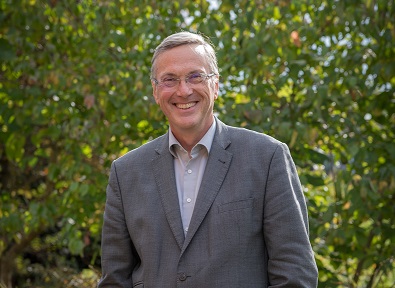Our impact
Our economic impact
A study carried out by London Economics measured the University’s impact on the UK economy in 2022-23.
The assessment found that we generate over £1.33 billion for the local economy, in terms of our direct spend with local firms, the money spent locally by our students, and the productivity and output growth we help generate in local businesses.
It also considered the impact of a range of our activities, including:
- the University’s research and knowledge exchange activities (£1.1bn)
- the value of the University’s teaching and learning activities (£1.0bn)
- the impact of the University’s educational exports (£984m)
- the impact generated by the spending of the University (£731m)
Headlines
In 2022-23 the University of Warwick’s overall economic impact on the UK was £3.8bn, an increase of 11% in real terms since 2016-17.
- Our benefit to cost ratio increased from 4.9:1 in 2016-17 to 5.3:1 in 2022-23*
- Our overall economic impact in the West Midlands was over £1.33 bn.
- We directly employed 6,895 full time equivalent staff and supported a further 10,770 jobs through our activities (68% of these jobs were in the West Midlands).
- Our spending contributed £464m to our region and our international students contributed £626m.
- We spent £36m of procurement expenditure in Coventry and Warwickshire alone ***.

Professor Stuart Croft
Vice-Chancellor and President, University of Warwick
"This report shows how deeply the University of Warwick is woven into the fabric of our region and country and the role we play in economic growth.
"As we mark our 60th anniversary, we are reaffirming our role as a major employer, educator and innovator rooted in the local community. But our contribution goes far beyond the economic. Whether it’s training teachers, advancing medical science, supporting local businesses, or offering creative opportunities for young people, we are helping to shape a more inclusive, sustainable, and globally connected society.
"Through our world leading education and research, our teaching and our partnerships – many of them formed right here in the region – we are working to improve lives in meaningful and lasting ways."
A breakdown of our impact on the UK economy in 2022-23
(Source: London Economics)

Our graduate outcomes


Our impact on businesses
Case study: WMG’s Digital Innovation for Manufacturing (DI4M)Link opens in a new window
This 5-year programme helped SMEs overcome barriers to innovation by raising awareness of new technologies and practices, to improve SMEs’ understanding of markets and growth opportunities support the development of greater levels of innovation.
Case study: Degree ApprenticeshipsLink opens in a new window
We work with over 300 employers to deliver Degree Apprenticeships, including Schneider Electrical UK, JLR, Rolls Royce, JCB, AtkinsRealis, Murphy Group, Worcestershire and Leicestershire County Councils, the University Hospital Birmingham, and Ofcom.
Find out more about our Degree Apprenticeships
Our impact on people
We are a major driver in our local economy but we also play a wider social and cultural role, positively impacting many different groups of people across communities who interact with our university.
Read some of our stories:
Graduates working in our region
Many of our students come to Warwick to study and decide to stay here, building their careers in our region.
*this means that for every £1 spent by the University on operational costs, we generated £5.30 across the UK economy.
**this is only the impact that can be geographically disaggregated
***based on the sum of procurement expenditure made in the Local Authorities of Warwick, Coventry, North Warwickshire, Nuneaton and Bedworth, Rugby and Stratford-on- Avon
****Note that higher education institutions (HEIs) from Northern Ireland are not covered by the LEO data and are therefore excluded from this analysis.
*****89.4% compared to an average of 88.1% across all Russell Group universities, and 87.2% across all GB HEIs combined.
Our social impact
Did you know?
In 2022-23:
- 22% of our overall undergraduate intake were from the West Midlands with 10% from Coventry and Warwickshire.
- 923 students were involved in community-focused projects in Coventry, Leamington, Kenilworth and Warwick.
- 44% of the University's waste was recycled
- Between 2018-19 and 2023-24, we reduced our carbon emissions by 17%, despite continued campus growth.
- We added over 200 teachers to the schools' workforce, with 78% in local schools in our region.
- Since 2000 we have trained over 3,000 doctors at Warwick Medical School. 26% of our graduates are practising in the West Midlands area.
- We engaged with over 200 schools and reached over 7000 participants with our widening participation activities
- 31,248 people attended Youth Theatre, Art Club, Workshops, and Family Days organised by Warwick Arts Centre.
- We delivered 320 creative sessions providing work for 35 regional artists and reaching 11,523 people across all our creative sessions delivered onsite and in the community.
- 11,140 people connected with our research through 63 live events across Coventry and Warwickshire as part of our Resonate programme.
University of Warwick is committed to the United Nations Global Sustainable Development Goals. Link opens in a new windowOur work in Our Impact most closely aligns to the following SDG Goals:
















